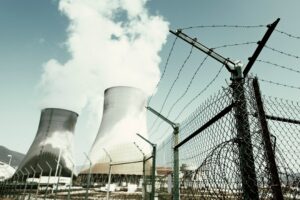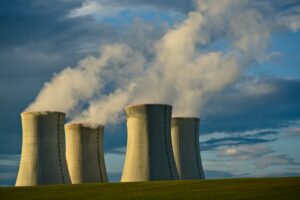The quest for clean, sustainable energy has enthralled innovators, researchers, and industry leaders across the globe. As nuclear power emerges as a key player in pursuing low-carbon energy solutions, attention has turned to exploring alternative nuclear fuel sources that offer enhanced safety, efficiency, and sustainability. One such element touted as a potentially game-changing source is thorium, a naturally occurring radioactive metal that shows promise in revolutionizing the energy sector when utilized as a nuclear fuel.
In this comprehensive article, we will shed light on the fascinating world of thorium-based nuclear energy, exploring its properties, potential benefits, and challenges compared to traditional uranium-based nuclear power generation. With insights from industry pioneers like William Sheriff and enCore Uranium, we will examine the innovative technologies and developments centered around thorium, such as advanced molten salt reactors, and delve into the implications and potential opportunities these breakthroughs bring to the expanding horizon of clean, safe nuclear power.
As we strive to build a diversified, low-carbon energy future, understanding the role and potential of thorium in advancing nuclear energy can enlighten our perspective on the myriad pathways toward a more sustainable energy landscape. Thorium presents a compelling case for further research, development, and eventual adoption within the nuclear industry, from its inherent safety features and efficient fuel utilization to its reduced nuclear waste and proliferation risks.
Understanding Thorium: Properties and Nuclear Fuel Potential
Thorium, with the atomic number 90, is a slightly radioactive metal found within the Earth’s crust. Owing to its unique properties and potential as a nuclear fuel, it has garnered interest in the energy sector. Here, we will explore the fundamental characteristics of thorium that make it an attractive candidate for nuclear power generation:
- Abundance: Thorium is around three to four times more abundant than uranium in the Earth’s crust, indicating a more readily accessible supply for fuel production compared to conventional nuclear material.
- Fertile Material: Unlike uranium, which is considered fissile, thorium does not readily undergo fission. Instead, thorium contributes to nuclear power generation as a fertile material, meaning it can be converted to fissile uranium-233 when bombarded with neutrons.
- Lower Proliferation Risk: Due to its fertile nature and difficulty separating fissile uranium-233 from the thorium fuel cycle, thorium-based nuclear power generation poses a lower risk of nuclear weapon proliferation than conventional uranium-based reactors.
Advantages of Thorium as a Nuclear Fuel Source
Thorium offers several potential benefits as an alternative nuclear fuel source compared to conventional uranium-based power generation. These include:
- Improved Fuel Efficiency and Utilization: Thorium fuel cycles can potentially achieve higher fuel burnup rates and improved fuel utilization compared to traditional uranium reactors. This increased fuel efficiency helps reduce the volume of nuclear waste generated.
- Enhanced Safety Features: Thorium-fueled reactors can incorporate advanced design features, such as passive safety systems and inherent negative temperature coefficients, contributing to a safer and more stable operation.
- Reduced Nuclear Waste Production: Thorium fuel cycles produce less plutonium and minor actinides, the primary, long-lived contributors to nuclear waste and the associated spent fuel management concerns. This lower nuclear waste production helps reduce the complexity and lifespan of waste storage and disposal processes.
- Lower Enrichment Requirements: The thorium fuel cycle relies on fertile thorium-232, which does not require enrichment before use in a reactor. This eliminates the need for energy-intensive uranium enrichment processes, reducing costs and minimizing proliferation risks.
Exploring Thorium-Based Reactor Technologies: Molten Salt Reactors
One of the most promising reactor designs being investigated for thorium fuel utilization is the molten salt reactor (MSR). Molten salt reactors use a mixture of thorium and other fissile materials dissolved in a liquid fluoride salt as the fuel, as opposed to conventional solid fuel rods. MSRs offer several potential advantages over traditional reactors, including:
- Increased Safety and Stability: Molten salt reactors can operate at very high temperatures without the need for high pressure, reducing the likelihood of accidents related to pressure build-up. Additionally, MSRs can incorporate passive cooling systems and self-regulating control mechanisms, further enhancing safety.
- Higher Energy Conversion Efficiency: The high operating temperatures of MSRs allow for improved energy conversion efficiency compared to traditional reactors, reducing the amount of waste heat generated and increasing the overall performance.
- Versatility and Scalability: Molten salt reactor designs can be adapted for various power output capacities and tailored to specific applications and locations.
Challenges and Future Directions for Thorium Nuclear Power
Despite its potential advantages, thorium-powered nuclear energy continues to face several challenges before becoming a mainstream power source:
- Technological and Engineering Hurdles: Developing thorium-based reactor technologies like MSRs involves overcoming numerous engineering and material challenges, such as corrosion resistance and structural integrity, associated with operating at high temperatures and in chemically reactive environments.
- Investment and Commercial Viability: The adoption of thorium as a nuclear fuel requires significant investment in research, development, and infrastructure. Convincing policymakers and investors of thorium’s long-term commercial viability remains a challenge.
- Regulatory and Licensing Frameworks: Current nuclear regulatory and licensing frameworks are primarily designed for traditional uranium-based power generation, necessitating the adaptation of existing processes to accommodate thorium-based reactor technologies.
- Public Perception and Awareness: Building public understanding and acceptance of thorium as a safe, clean nuclear energy source is crucial for fostering support and enthusiasm for its development and deployment.
Embracing Thorium’s Potential in the Clean Energy Transition
The use of thorium as a nuclear fuel has the potential to revolutionize the energy sector with enhanced safety, efficiency, and sustainability. Industry pioneers like William Sheriff and enCore Uranium advocate for advancing and adopting thorium-based power generation driven by innovative developments like molten salt reactors.
Embracing thorium’s potential means exploring new opportunities for clean, domestic nuclear energy production, diversifying our energy sources, and minimizing the environmental impact of conventional nuclear power. As we forge ahead with the clean energy transition, thorium represents a vital piece of the puzzle in securing a sustainable and prosperous energy future.





